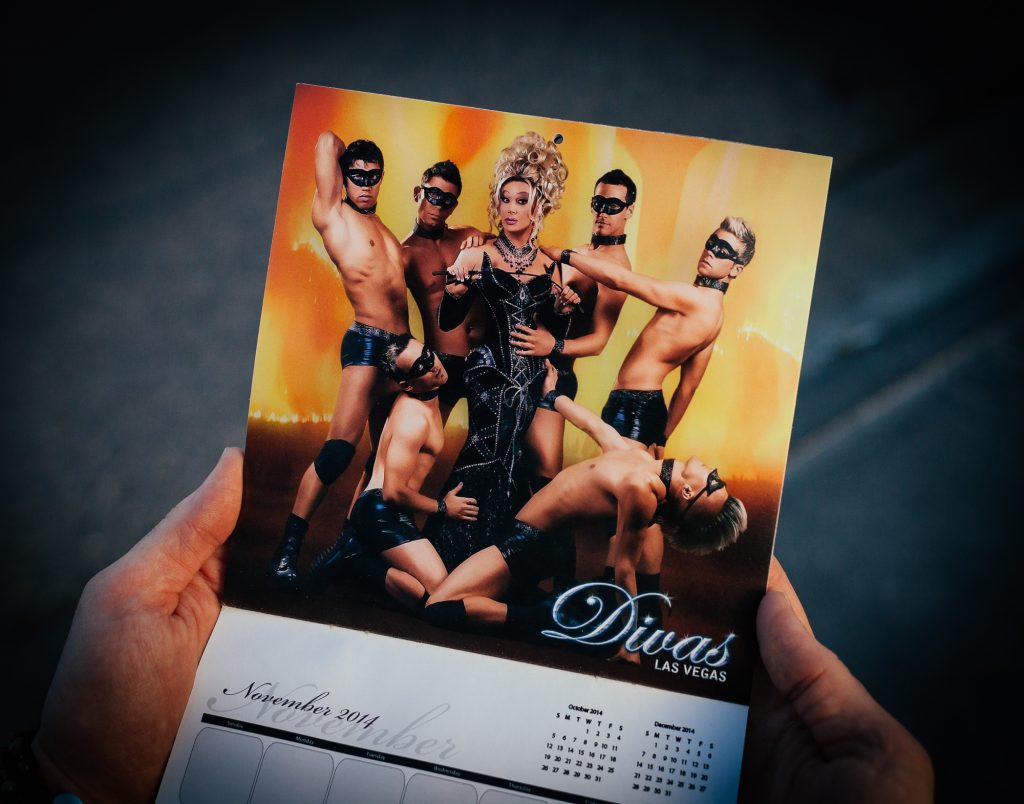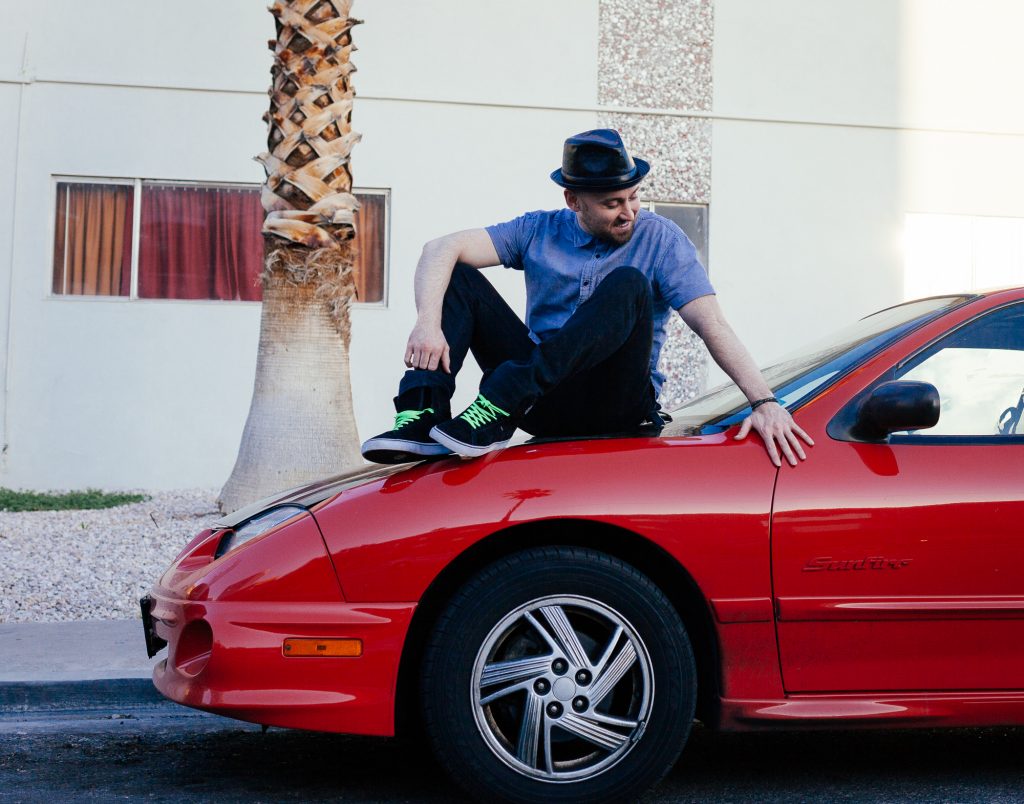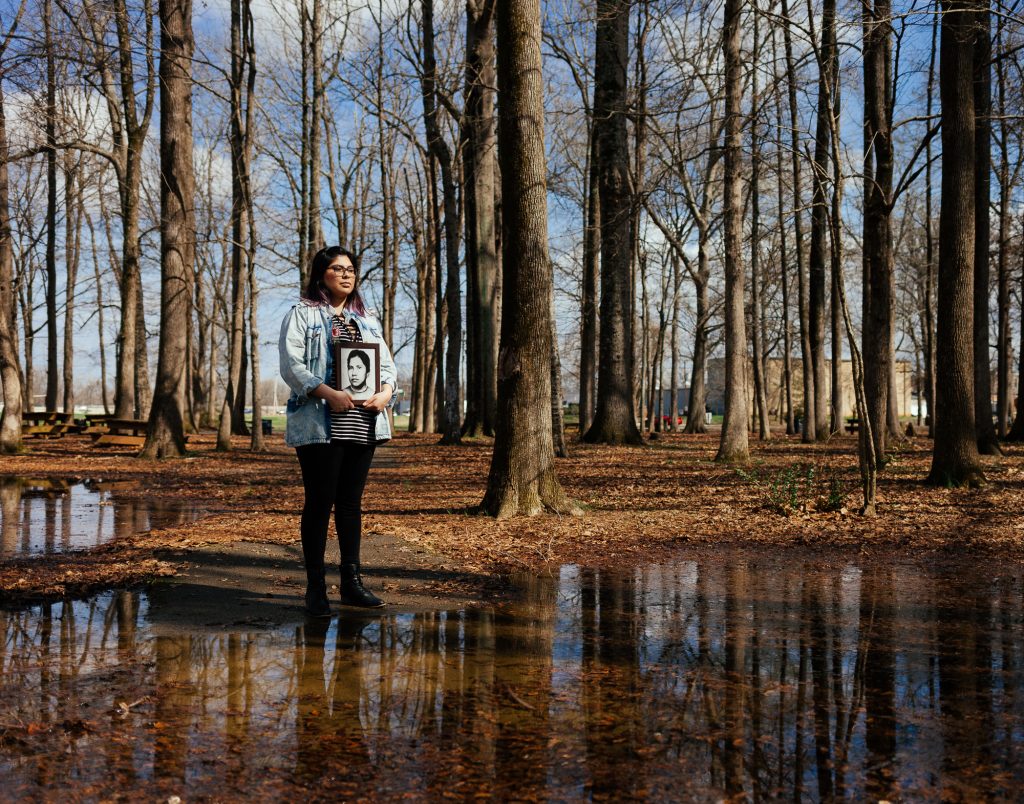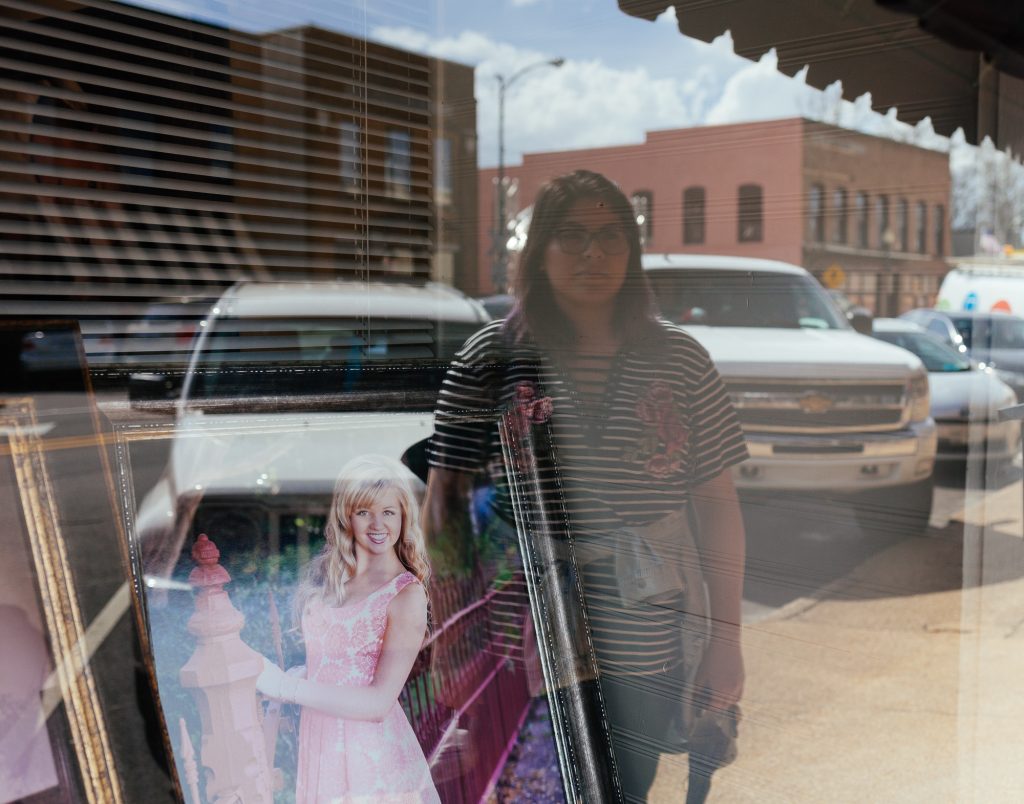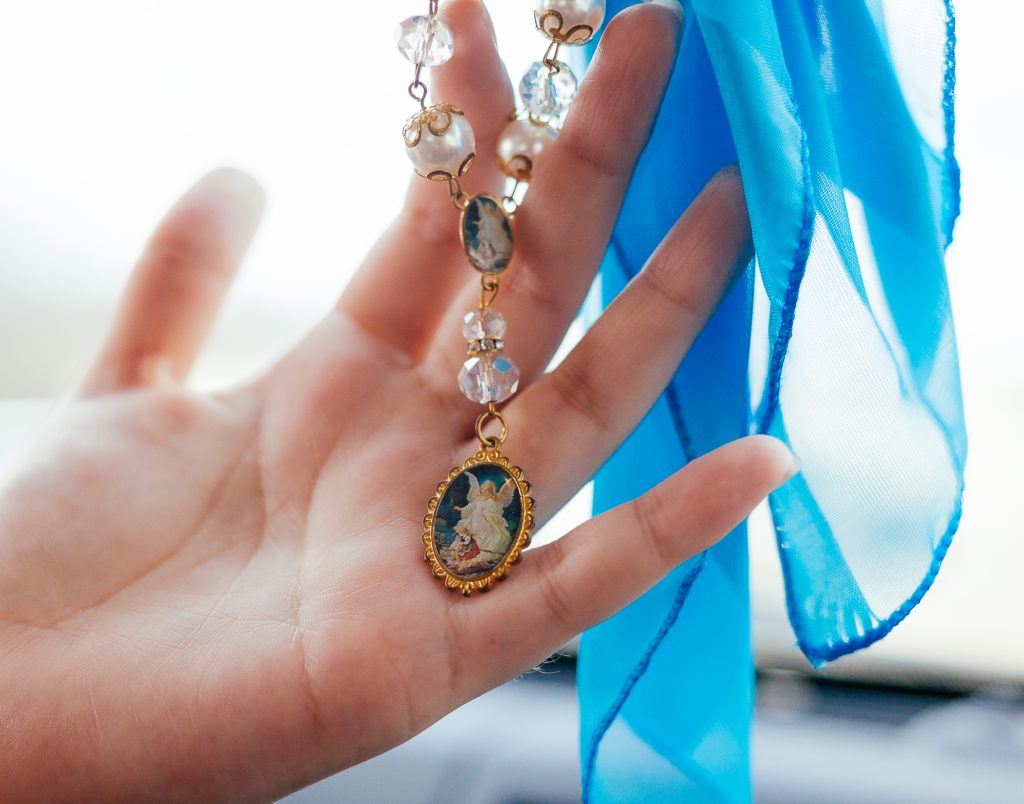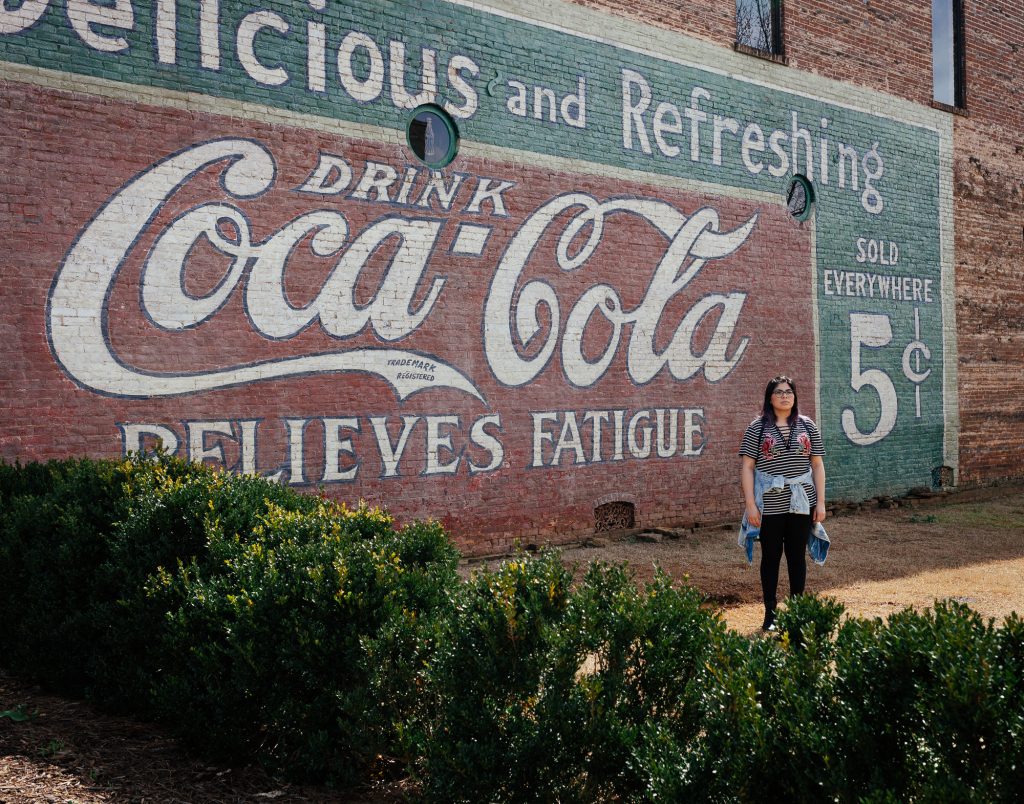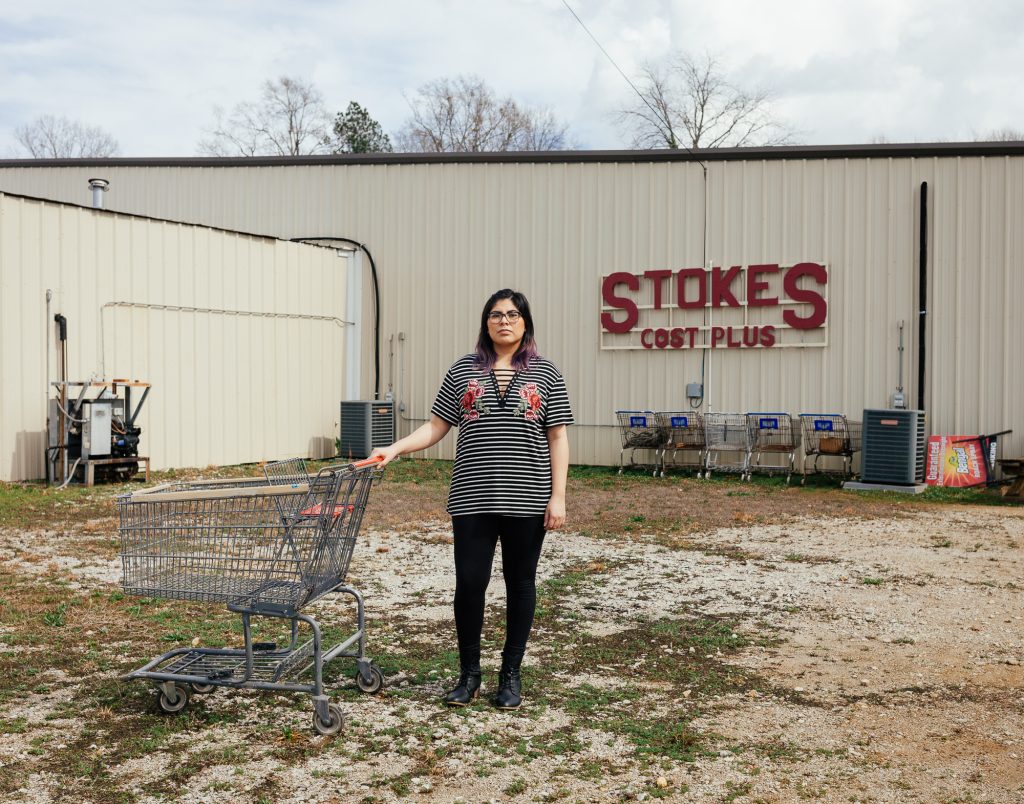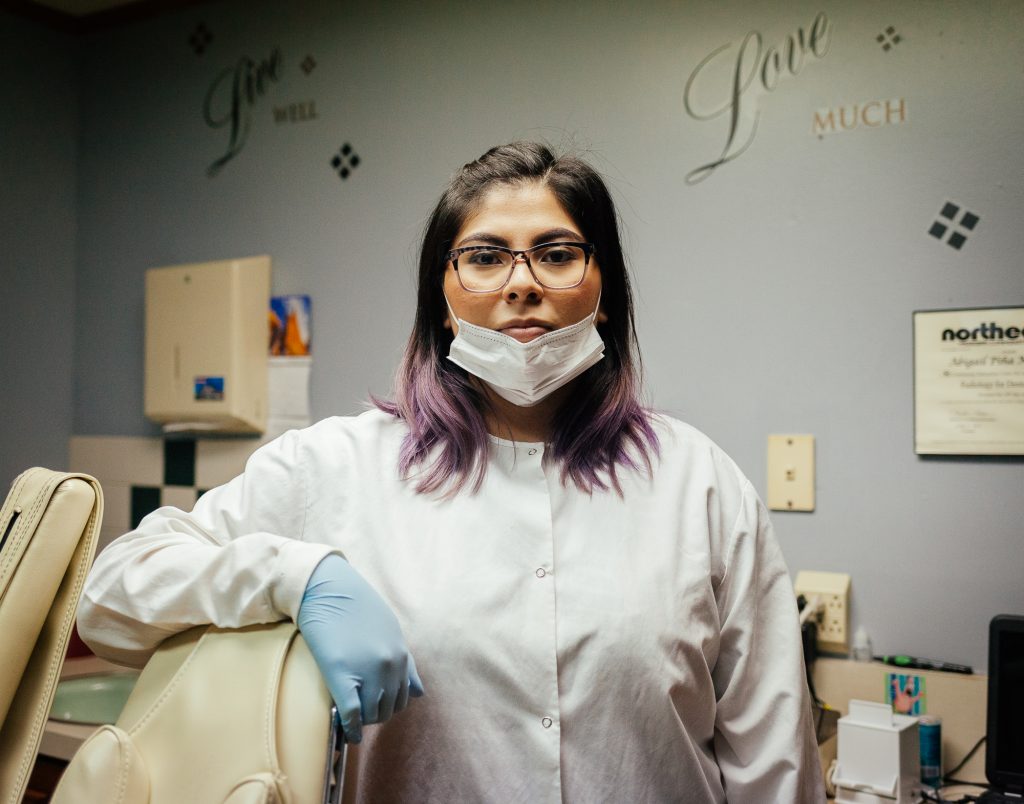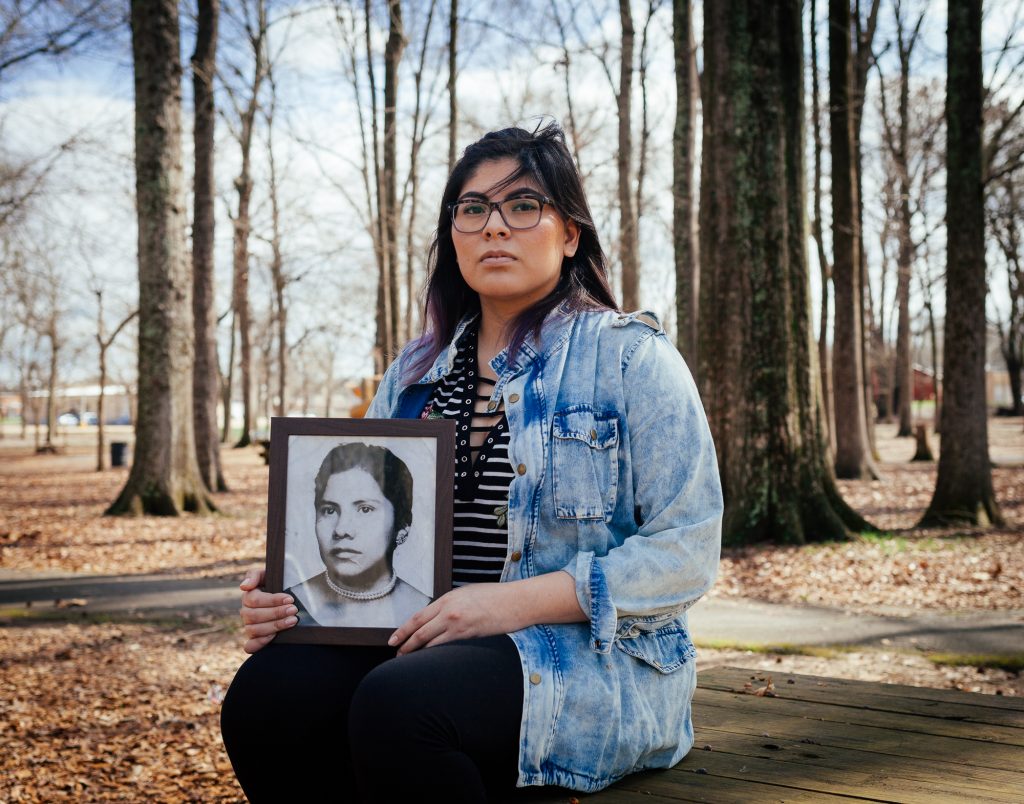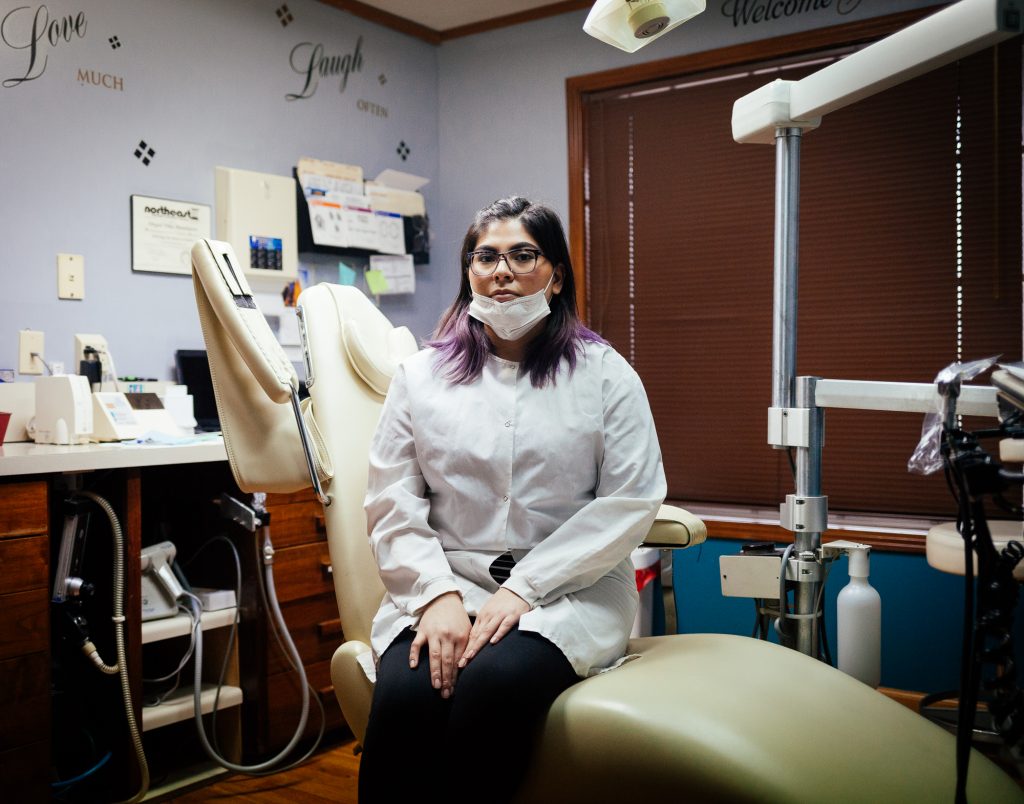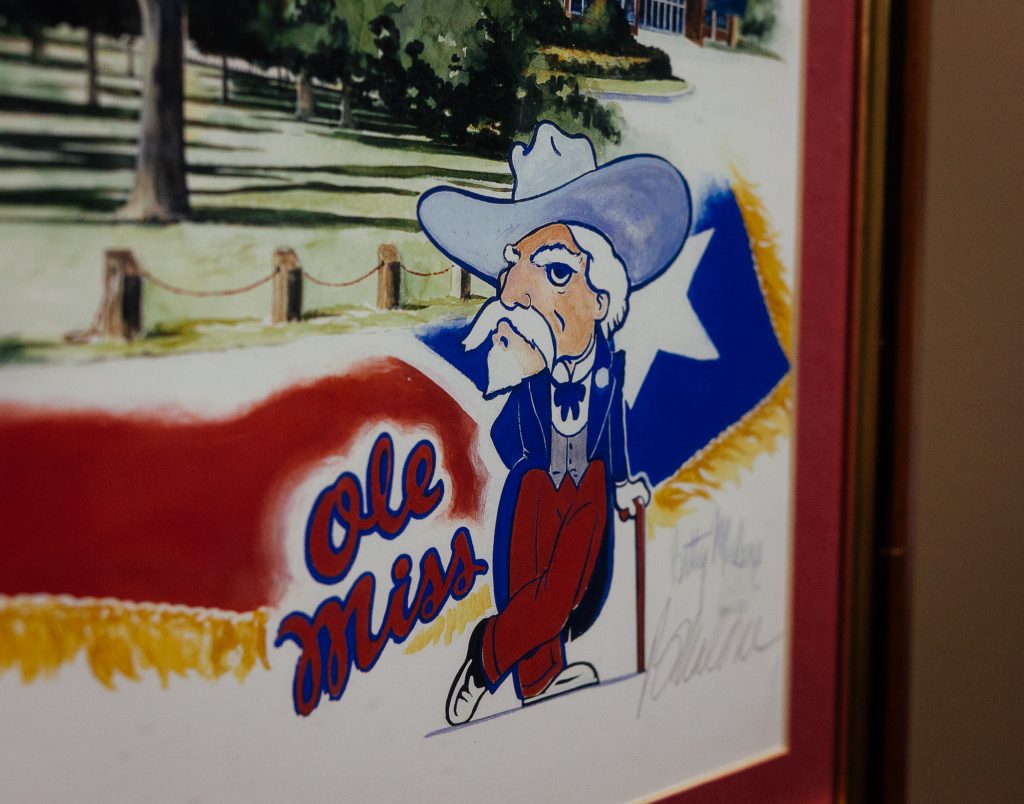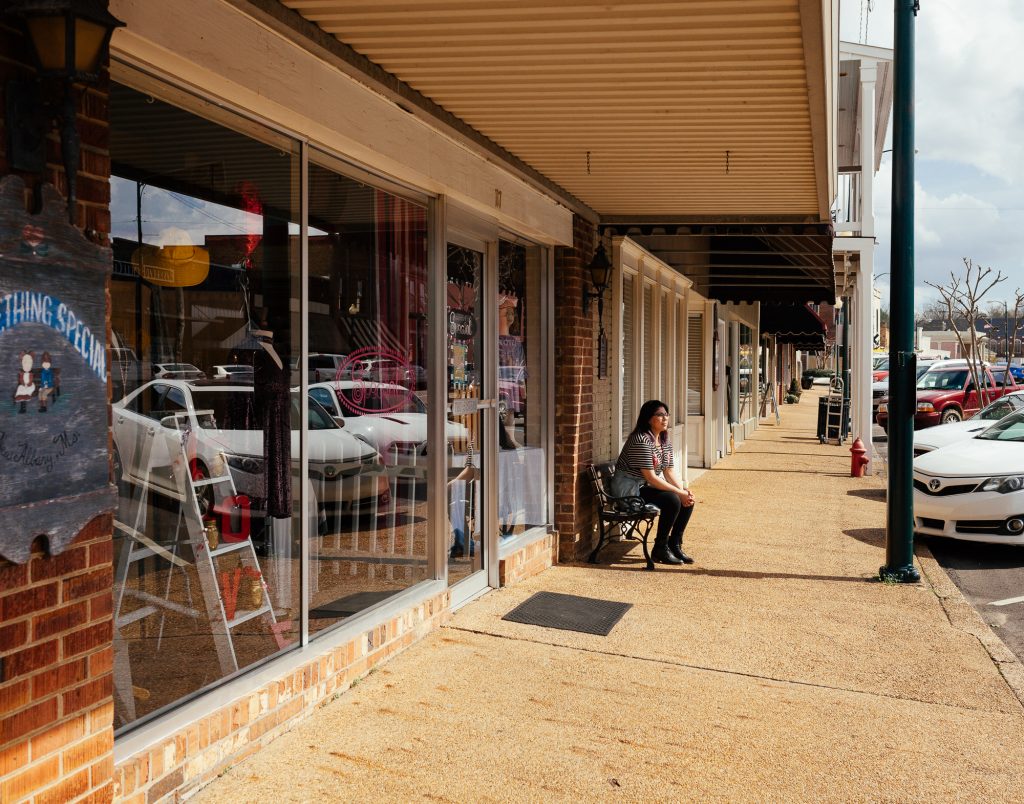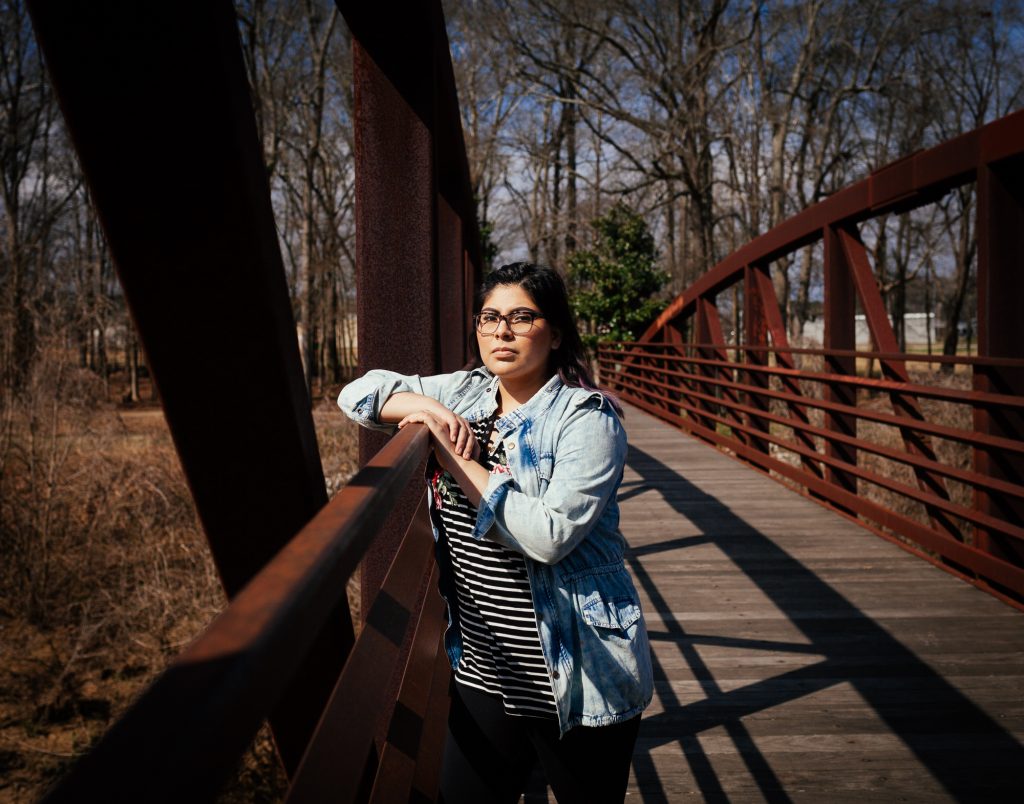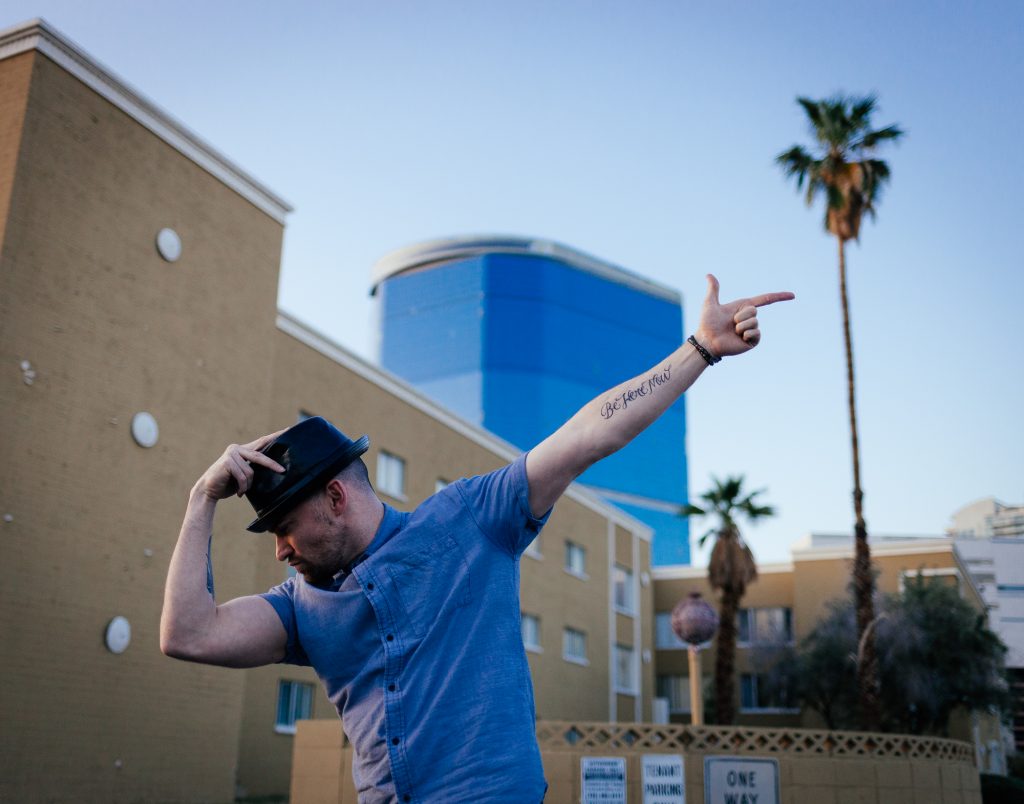
Childhood
Jonathan was born in Kitchener, a city he describes as not the nicest place, but also not the worst. Jonathan’s mom ran a flower shop, and his father sold parts for transport trucks.
“My childhood was great. We were poor, but I didn’t know it. I was given a lot of free time to create. Since I wasn’t able to get all the fancy toys, I would make them. I was content with that because I didn’t know better.”
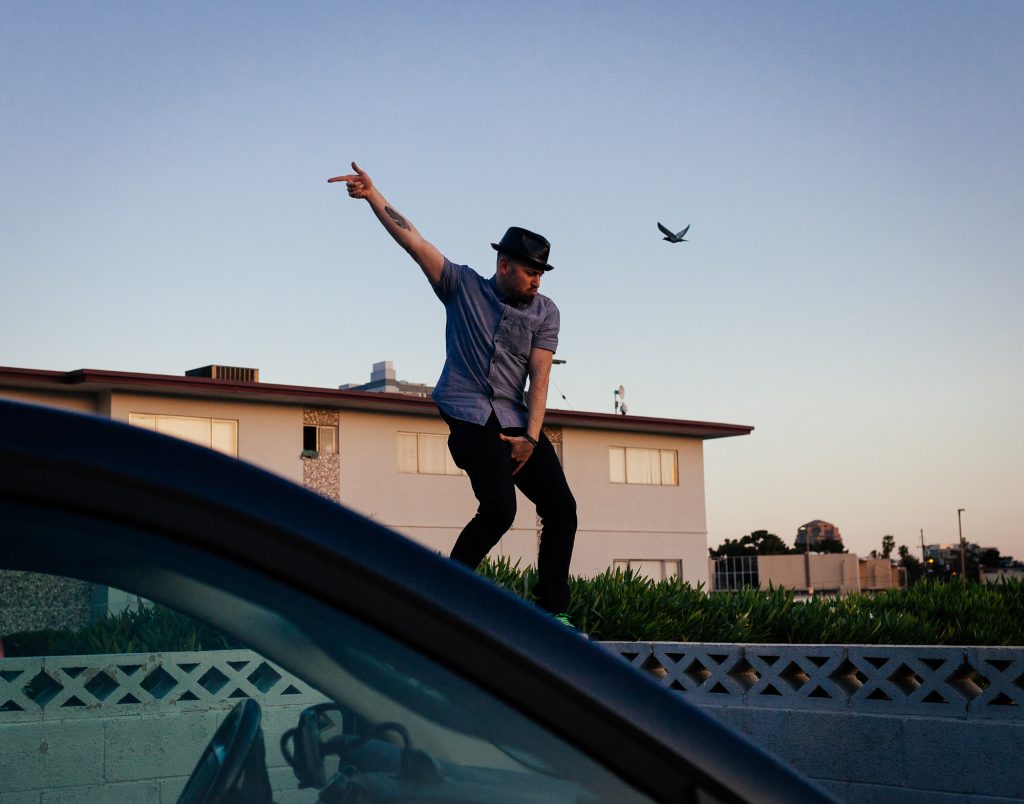
Dreams
“When I was very young, one of my dreams was to fly. I have vivid memories of me walking, and I would be stepping on air. I wanted to fly, and I wanted to do something amazing. I’ve continued trying to be part of something amazing.” (audio below)
When Jonathan was just three, he became a fan of Michael Jackson, and by six, he taught himself how to moonwalk.
“Down by my house, there was a video rental store with one copy of ‘Moonwalker’ and one copy of ‘Thriller.’ Every week I would rent them, and it was a seven-day rental. I would bring them back, and that same day I would rent them again. They let me do that for a year and a half, then finally they said, ‘just keep them.’ I ended up burning through ‘Moonwalker’, though. I played it so many times it melted and got stuck in the VCR. Those movies I would watch and rewind and watch and rewind to teach myself. I only started dancing when I was 14, so I had a lot of years of just watching and copying.” (audio below)
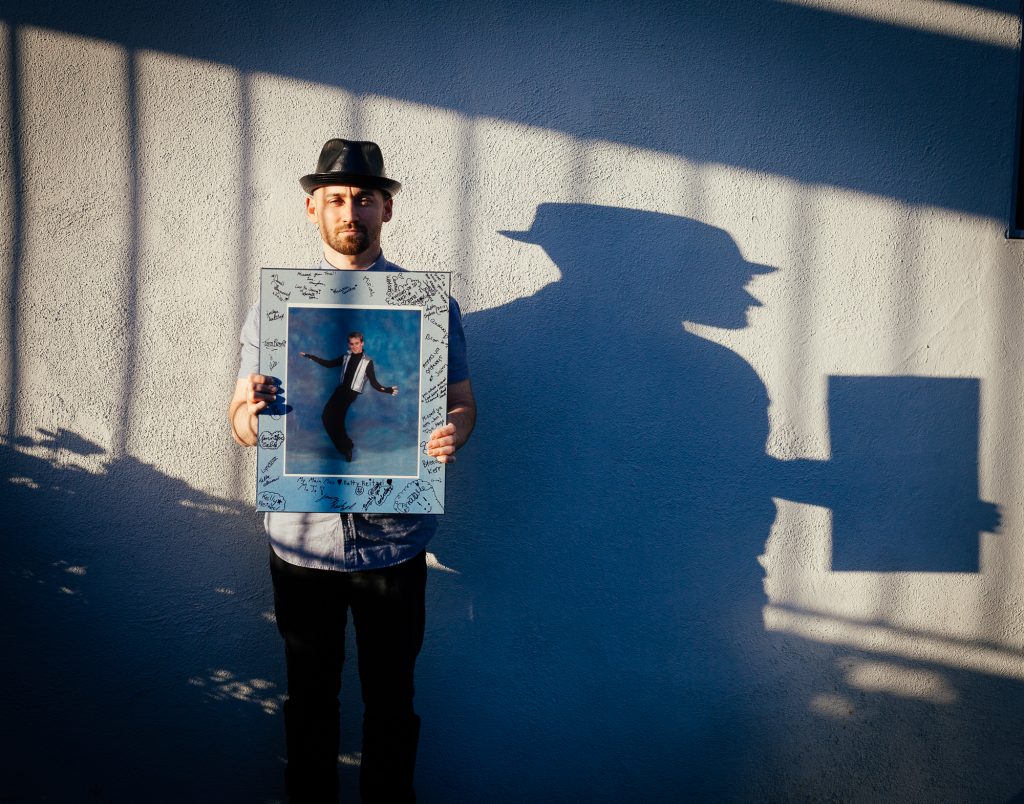
Dance
Every year Jonathan would ask his mother if he could take dance lessons, and each year the answer was “maybe next year.” He didn’t know it at the time, but his mother was afraid of the teasing her son would likely endure if he took up dancing – and she didn’t know if he could take it. Finally, when he was 14, his mother gave in. Two years later, Jonathan went to study under the choreographer Sheila Barker, who took him under her wing, and to whom Jonathan refers to her as his “dance mom.” She was the biggest influence in his dance life and pushed him hard. “If Sheila made you cry, that meant you were something special.”
Dance came easily to Jonathan. When it comes to learning movement, Jonathan says his brain is like a sponge. It was everything outside of dance that was a challenge.
“I gave up hockey and baseball to dance. My uncles teased the crap out of me. I was known in my family as ‘fairy boy.’ The joy I get from dancing always outweighs whatever I was getting outside of it.” (audio below)
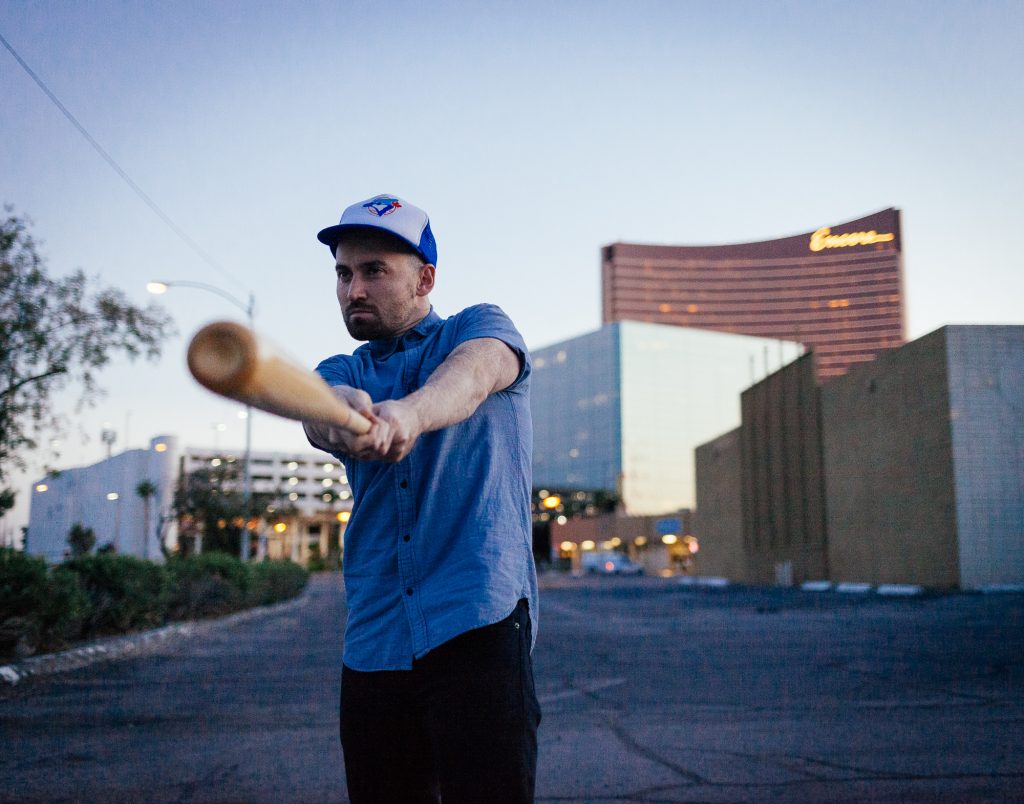
Assumptions
From Jonathan’s experience, the assumption for any male who pursues dance is that they are gay. Canadian society, when Jonathan was young, wasn’t as progressive and accepting as he likes to believe that it is now.
“As soon as I started dancing, they would push me around – they’d beat me up. For my grade eight graduation, my mom came to pick me up, and my friends spit on our car because I was dancing, and I was gay, a fairy boy. They spit on our car – my friends I had grown up with!” (audio below)
Jonathan had been dancing for one year when he decided to go to Eastwood, an art-focused high school in his hometown. Being around other artistic kids fed his drive, but still, he wanted more.
“It was whipped cream topping, but I wanted the whole cake.”
Immediately after high school, Jonathan got a job at an amusement park called Canada’s Wonderland, performing as Michael Jackson. When he looks back on it, he realizes how they were taking advantage of him. He did thirty shows a week and was receiving meager pay. Still, he loved it. He was so busy he forgot to eat. When his mom came to visit, she was furious. He remembers her taking him straight to the grocery to buy frozen meals. Despite the intensity, he still loved it – the freedom of being away from home. “It was one of the best jobs I’ve had, period.”
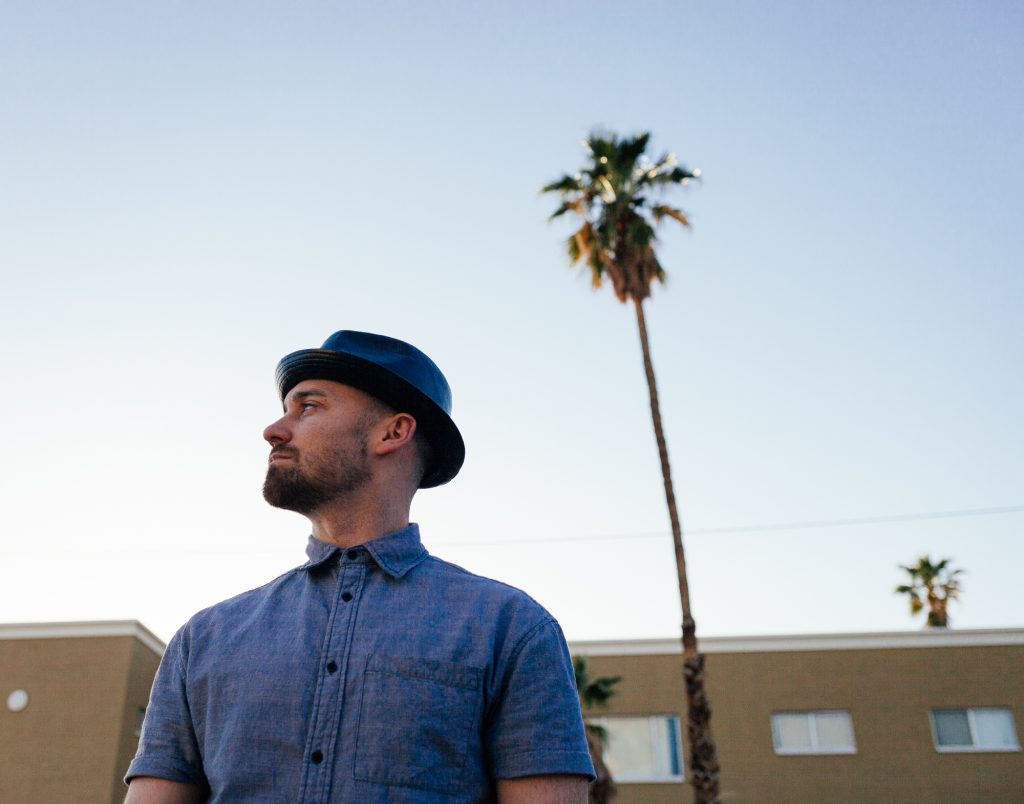
Ship Life
After that summer of dancing, he got a job on a world cruise. Jonathan had no idea what he was getting into. He had never been on a cruise ship, and the work schedule was intense. Jonathan was 18, very eager, and much younger than everyone else. He felt disliked right away and found himself in a toxic, bitter cast. It was his first experience of “the ugliness of the performing world.” He remembers how on his birthday, a fellow cast member stepped on his head on purpose and knocked him out during a show. He spent his birthday night alone, getting phone calls every hour from the doctor to make sure he was awake.
“Ship life is not for everyone. You are in confined quarters, surrounded by the people you work with. You can’t get away. ”
Still, there were positives to the experience – he moonwalked at age 19 on the Great Wall of China!
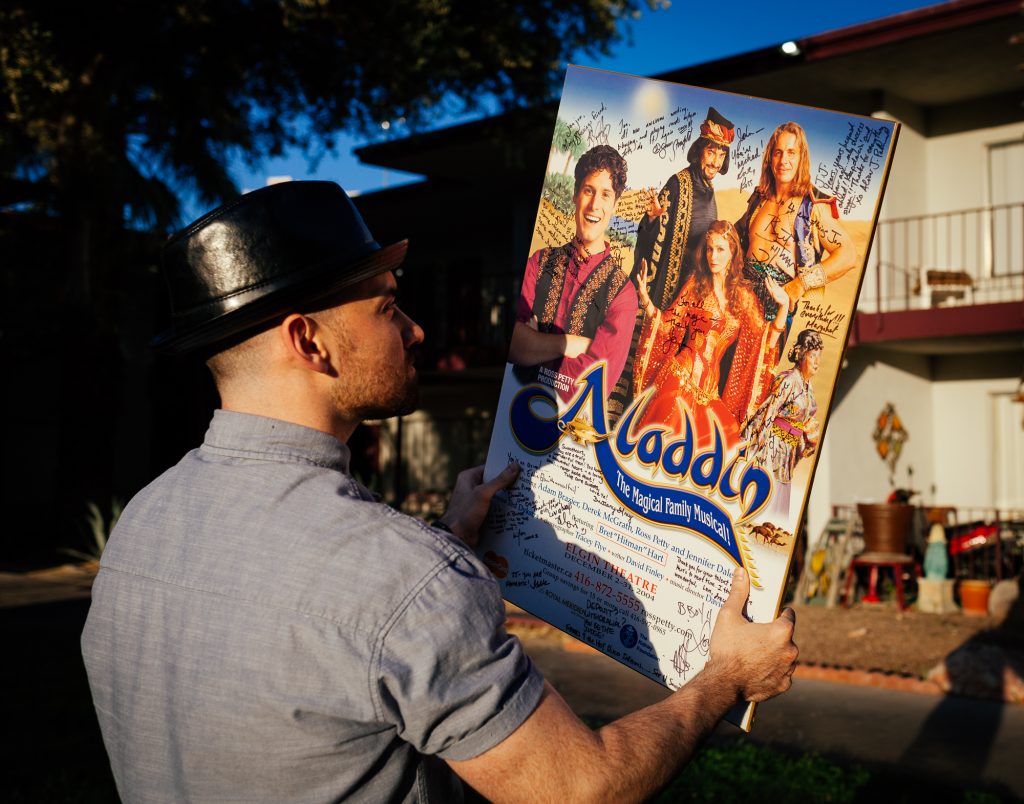
After the experience on the ship, Jonathan returned to Canada and started dancing in Toronto. He secured a part in the pantomime Aladdin starring the famous wrestler Bret “The Hitman” Hart – someone he was a huge fan of as a kid. In 2005, after living in Toronto for three years, he moved to New York. His best friend’s father, who had recently passed away, left Jonathan money in his will to be used for dance training. Jonathan’s agent didn’t like the idea, and looking back, Jonathan realizes how harmful this decision was to his Canadian dance career.
“I was a face in the Toronto dance scene, and I fell off the map.”
Jonathan believed that a year studying in New York at the Broadway Dance Centre would turn him into a “different dancer”. When he arrived, he realized many of the classes were beginner level, and some of his classmates had never taken dance before. Jonathan started skipping class because of how useless it felt. He liked being in New York, but this wasn’t what he was looking for.
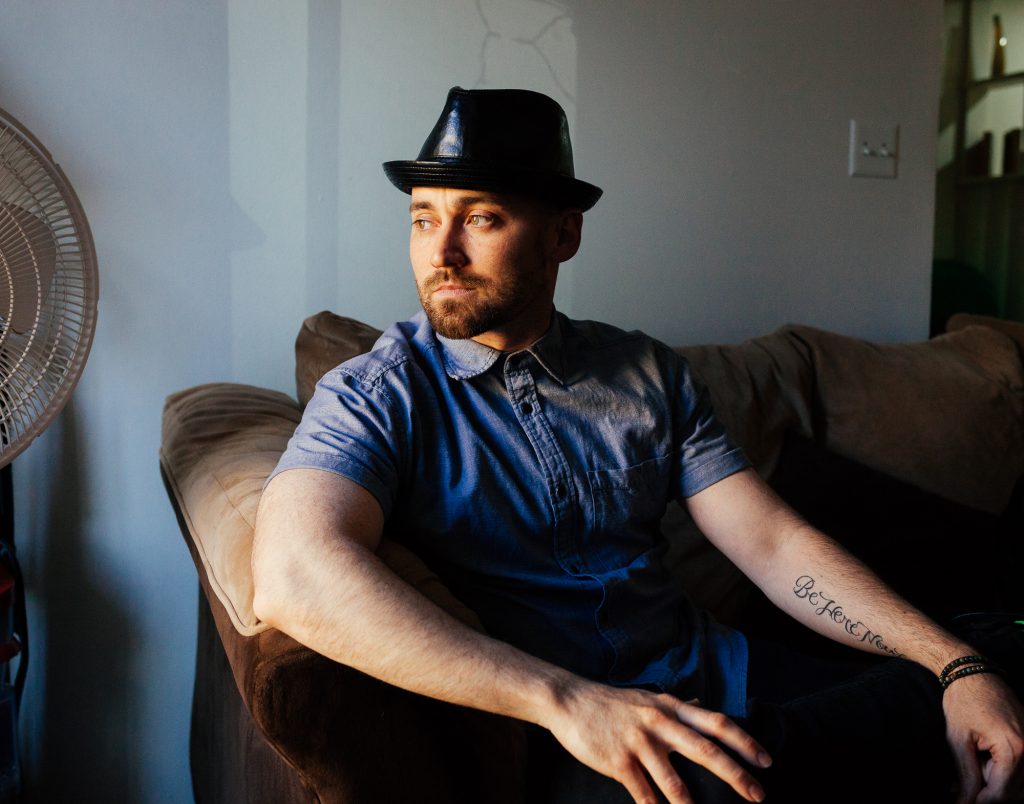
A Close Call
In 2006 he went on a cross-Canada tour with the Aladdin show. During this tour, Jonathan collapsed during the show and woke up with concerned people surrounding him. Jonathan tried to brush it off, but that night he couldn’t see, his head was pounding, and he couldn’t sleep from the pain. Jonathan tried to pretend to be feeling better. He went to the doctor, who told him not to worry about it.
Jonathan returned to New York to train and received a call from his mother. She said the stroke clinic had been calling the house, wondering why he hadn’t been to his appointment. The malformation in his brain looked like damage from a stroke. Although the tests came back negative, Jonathan had a severe migraine six days a week and was throwing up regularly. He has a malformation of blood vessels, and if he has surgery, there is a 60% risk of losing some of his motor skills.
“You know I’m a dancer, right? That’s not an option.”
The focus became treating his migraines rather than surgery. Still, the doctor warned that by the age of 50, Jonathan could have severe issues with day to day functioning if the condition worsened. After this scare, Jonathan got serious about his health. Luckily the malformation hasn’t grown, but Jonathan knows that it could at any point. (audio below)
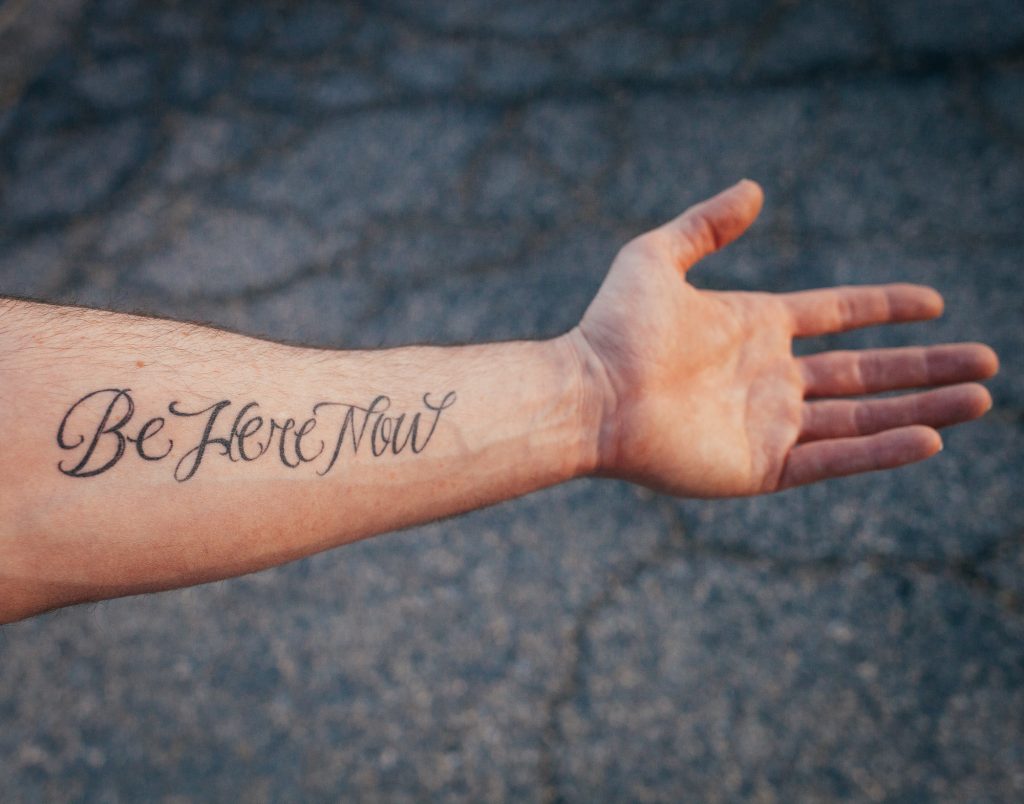
After his medical scare and suffering from severe migraines, he had his first experience at “a regular-person job.” Jonathan worked at his hometown grocery store, stocking shelves on the night shift. He lasted three months.
“As a performer, you perform on stage and can hopefully bring joy and a moment of escape for the people watching. Stocking shelves, you work so hard and come in the next day, and it is like you weren’t ever there! ”
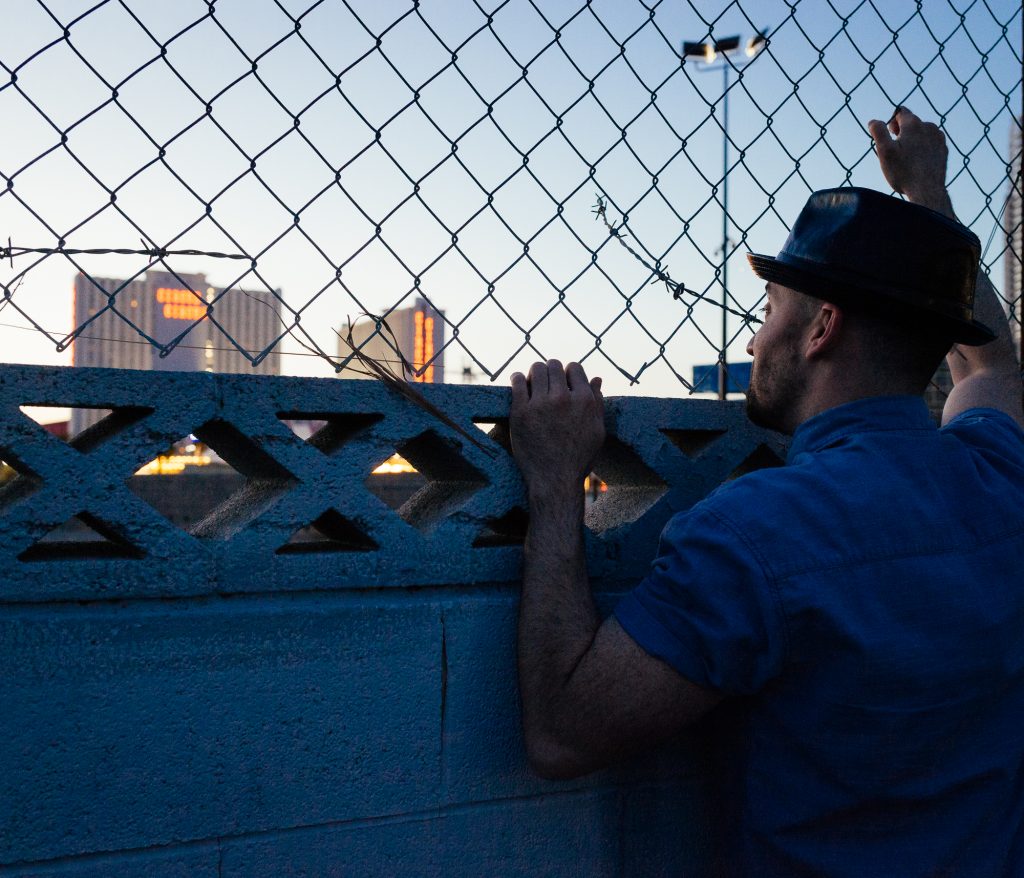
Las Vegas
Jonathan received medical clearance to return to dance. After once again working on a cruise ship, he decided to try his luck in the USA. In 2009 Jonathan drove down to Las Vegas to work in a Cirque du Soleil show. Upon arrival, they told him he was no longer needed, as the person he was replacing was staying in the show. Jonathan had moved his whole life to Vegas for a job that didn’t exist.
“It’s always a series of unfortunate events it seems for me, but I always try to make the best of it.”
While Jonathan was trying to find any job to pay the rent, he went to an audition his friend suggested. He was surprised when they asked him if he was willing to trim his leg hair as a requirement to get the part, and although Jonathan still didn’t know anything about the show, he agreed. Soon after another person walked in, introducing himself as “Cher”, and informed Jonathan, he had auditioned for Divas Las Vegas, a drag show. Jonathan became one of six male backup dancers to the performers. (audio below)
So You Think You Can Dance
In 2009 he auditioned for So You Think You Can Dance Canada. He hadn’t prepared anything and made up a solo right there on the spot. It was great, but then they asked him to do the routine a second time. How could he replicate something he had improvised? Still, he managed to get on the show. (audio below)
In 2011, the producers of the show reached out to his agent, asking if Jonathan intended to audition for season three of the show. Although he hadn’t planned to do so as he was busy in Las Vegas, the phone call encouraged him to try again. He did well that season and made it to the top 12, but the show wasn’t the big break he was hoping for.
“I thought it was going to be that moment when I was like, ‘yes, I’ve done it.’ It wasn’t.”
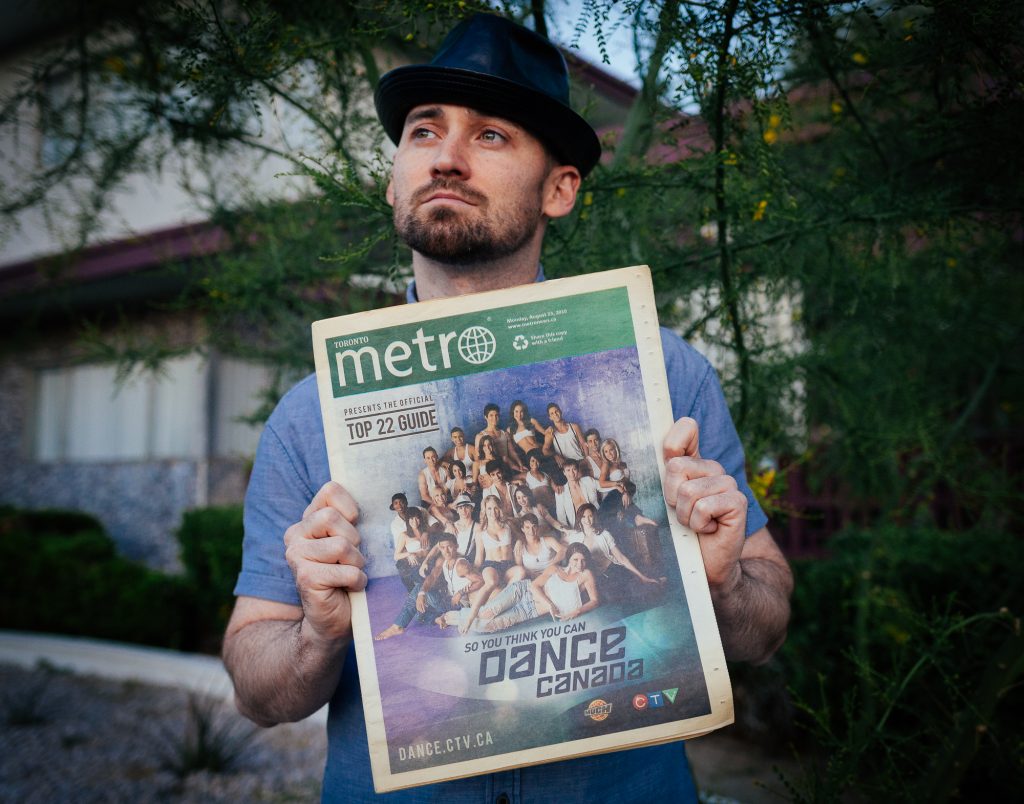
After returning to the drag show, Jonathan was in a 50 Shades of Gray-themed topless show. The producer started trying to put nudity into the numbers of the show that didn’t involve nudity. Any numbers that they couldn’t do topless he cut. This show that Jonathan initially thought was creative became a “generic topless show.”
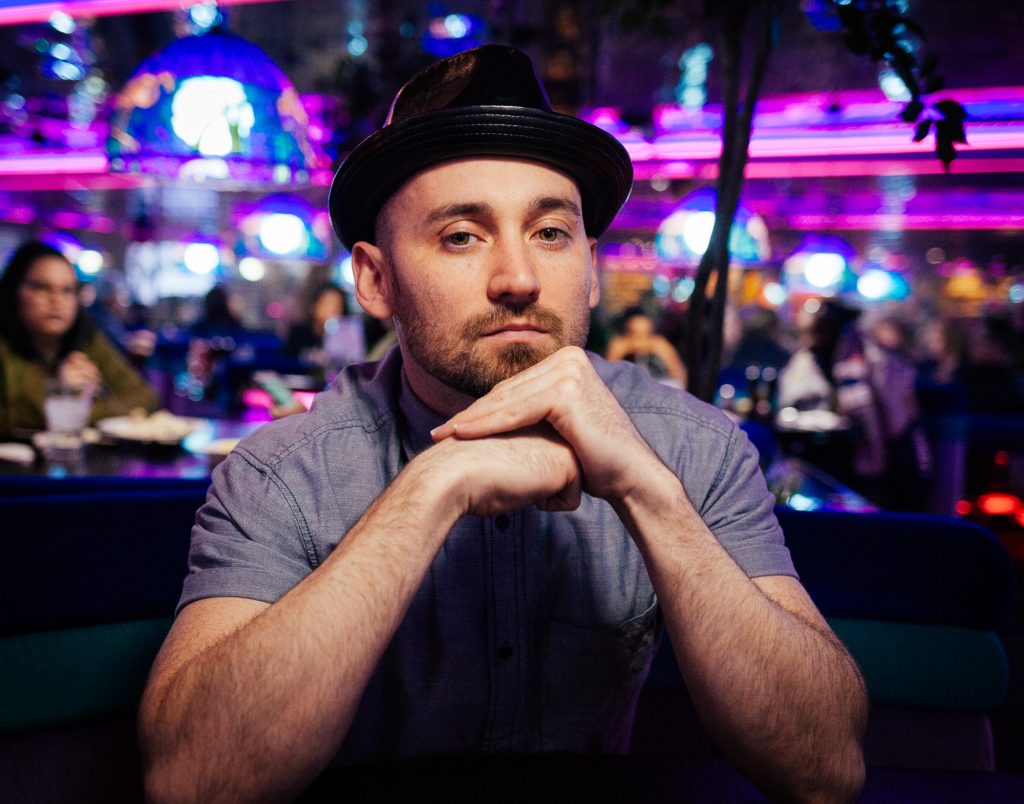
“Grandma taught me if something is wrong to speak up.”
Jonathan told the producer that he thought his choices were demeaning and disrespectful to the women in the show. He’s glad he did because the producer listened, and changed the show for the betterment of the cast. Jonathan next performed in a show called Donny and Marie, for almost three years. During this time, he was having difficulty with his visa and was engaged to a Canadian woman. Jonathan moved to Vancouver to see if his relationship with his fiancée would work, but it didn’t.
The directors at Donny and Marie wanted him to come back to the show, so he started the process of getting a new visa. On the day he was driving down to Vegas, Jonathan found out that the job he thought was available wasn’t. It was like deja-vu – driving to Vegas without a job lined up. Jonathan had spent $9000 on a work visa, so he figured he should try to make use of it. Once again, for the third time, Jonathan was back in the drag show.
“Las Vegas is something everyone should experience once in their life. A completely different world than anything else that exists. After living here, going anywhere else is a huge culture shock. You get used to things never closing here.”
Grandma
Losing his grandmother in 2012, was an incredibly difficult time in Jonathan’s life. When the family was sorting through her belongings, they found plaques of newspaper articles about Jonathan that she hadn’t even unwrapped yet. Jonathan can’t bring himself to take the plastic wrap off. She was his biggest fan. Jonathan got a feather tattoo as a symbol of her.
“She was so close to me. She pretty much raised me. I was either at the flower shop or at grandma’s. She was Scottish and blunt and I learned so much for her. She always danced and she taught me about Tom Jones and Rod Stewart – all these ladykillers. My grandma always motivated my dancing. I was her superstar.” (audio below)
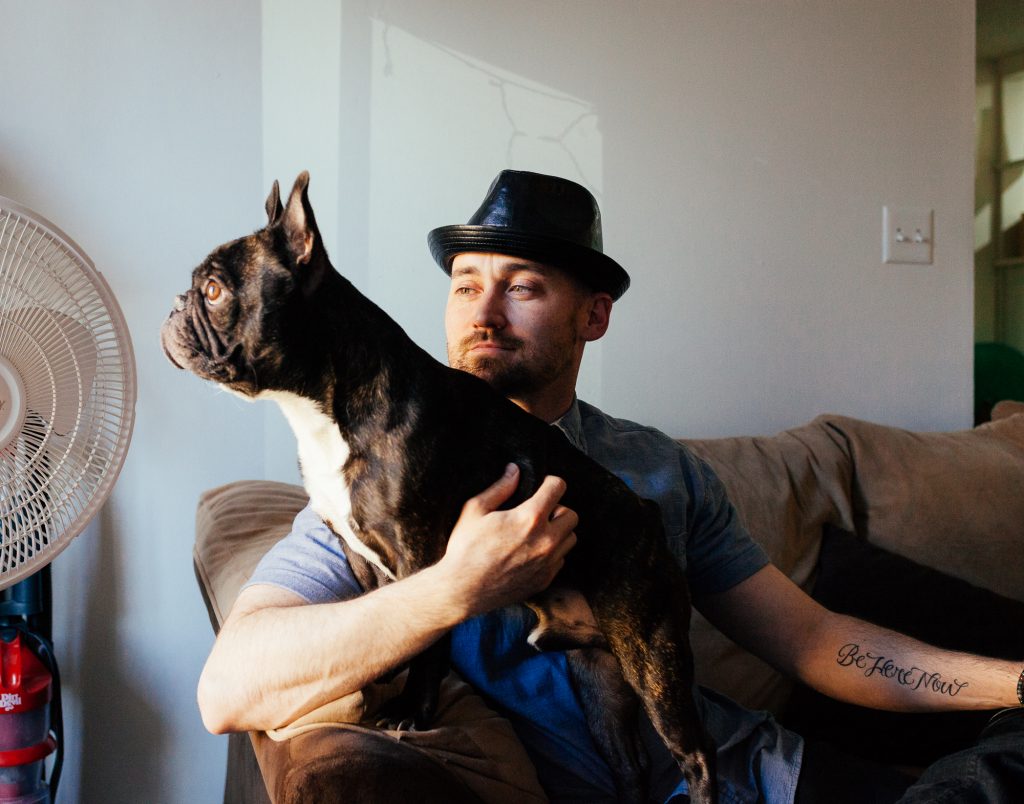
Future
Jonathan emphasizes how hard it was for him to get work visas (he has had two).
“They go through your stuff with a fine-tooth comb. Freelancers aren’t established enough to get a work visa. I’ve been seriously considering moving back to Canada.”
Jonathan doesn’t want to stop dancing and is looking for his next job. He is trying to focus on his priorities now, like taking care of his dog Dexter, and to take things slower.
“If I couldn’t dance anymore, it would be rough. This time while freelancing, I’ve come to learn that I am okay with not dancing. I’m not super content and happy, but I’m okay.”
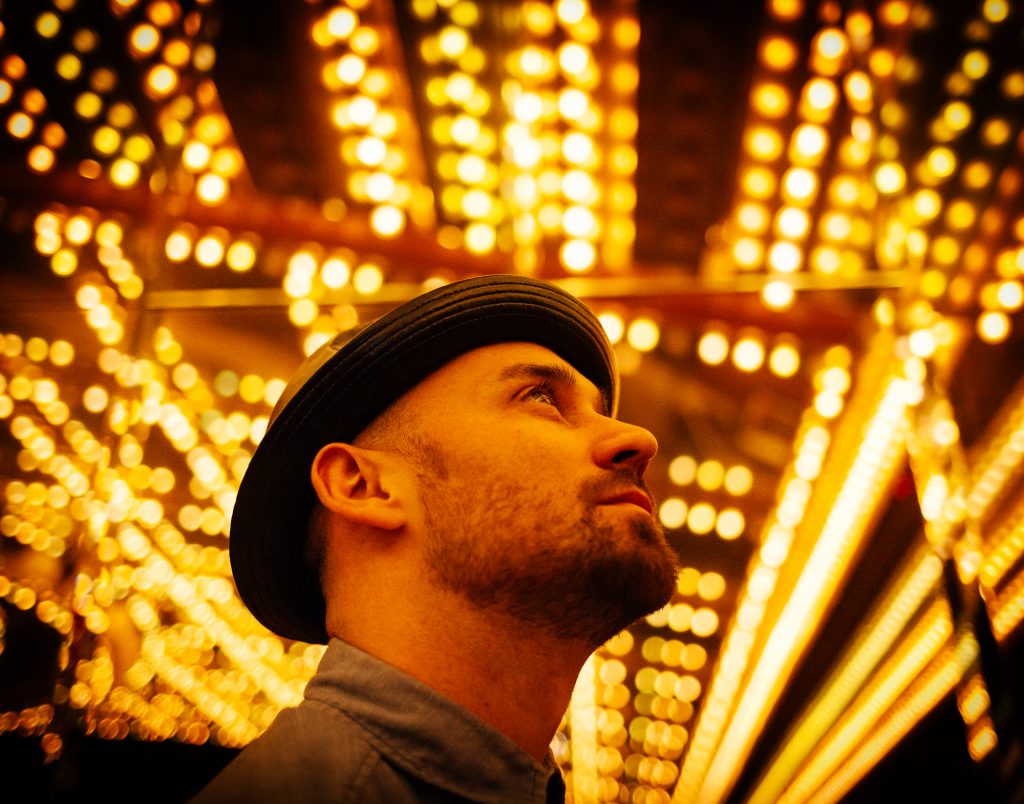
Jonathan has advice the next generation of dancers.
“Believe in yourself because no one else will. Always stick to your gut. No matter what gets thrown at you, keep moving forward. It is one of the hardest industries to be in. Take every moment that you are dancing and just enjoy it. If you enjoy that experience of dancing, you are going to get something out of it. You lose jobs on stupid things: on eye color, hair color, or height. These things are outside of your control, so let go of them. Things inside your control – work your ass off for them.” (audio below)
*Update: Jonathan decided to move back to Canada. He is currently teaching dance, spending time caring for his mother, and in the process of trying to find his path.
#FINDINGAMERICAN
To receive updates on the book release and exhibition of “Finding American: Stories of Immigration from all 50 States” please subscribe here. This project is a labor of love and passion. If you would like to support its continuation, it would be greatly appreciated!
© Photos and text by Colin Boyd Shafer | Edited by Kate Kamo McHugh & Janice May. Quotes are edited for clarity and brevity.

